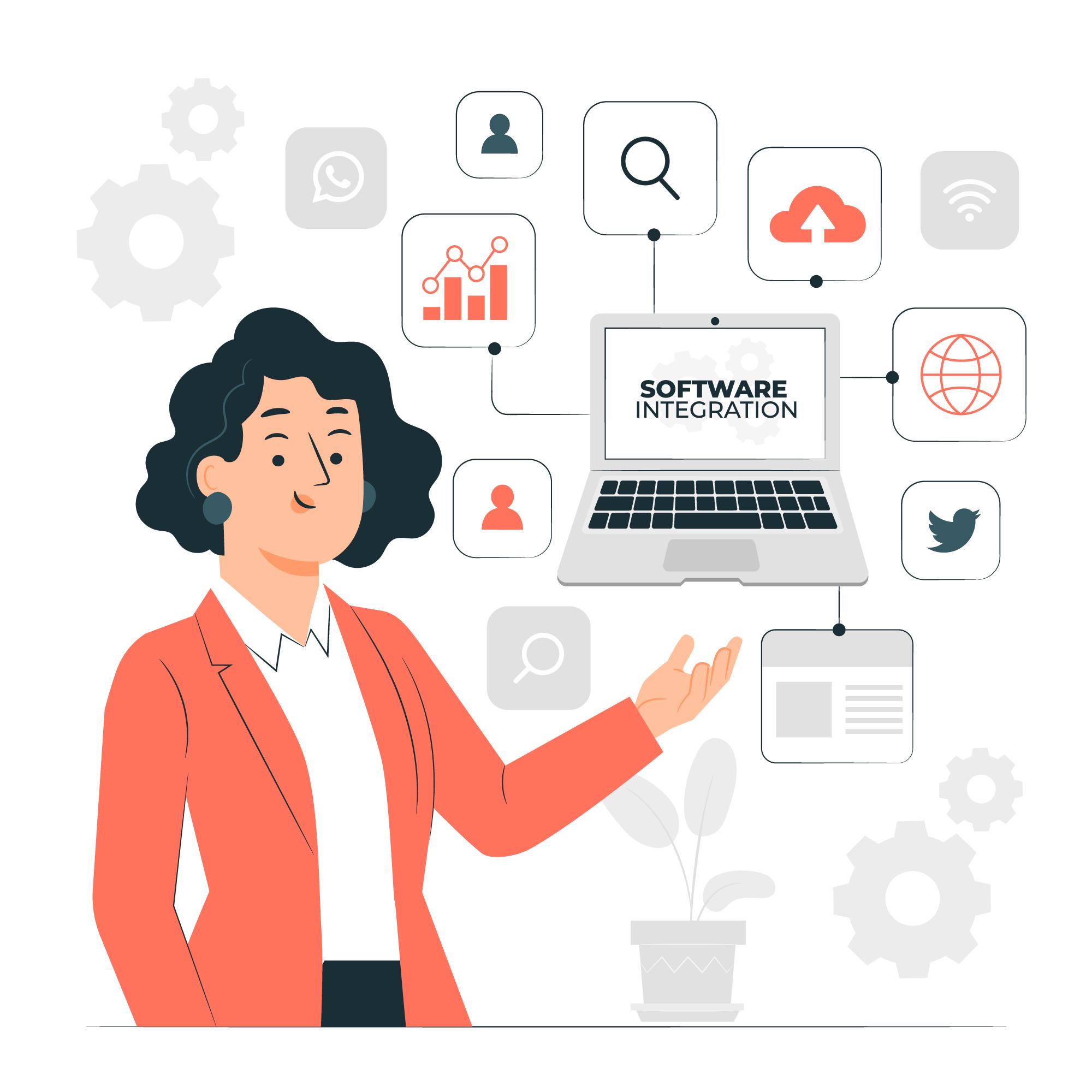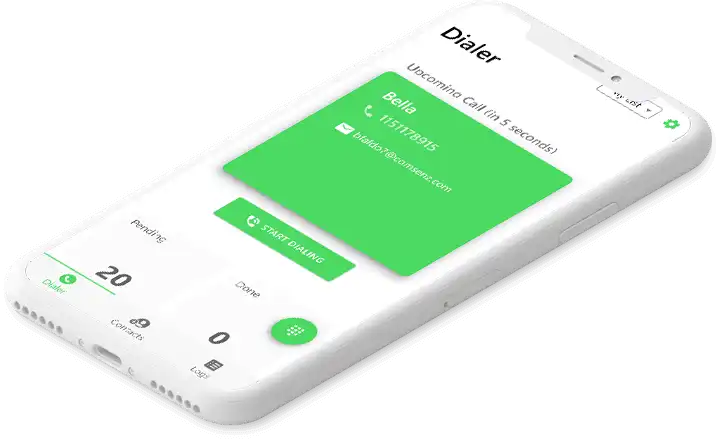How Can a CRM Be A Good Tool For The Finance Sector?
The Finance sector is a critical component of the global economy, playing a key role in enabling economic growth and development.
The finance sector is comprised of a wide range of institutions and businesses, including banks, investment firms, insurance companies, and other financial intermediaries.
One of the primary functions of the finance sector is to channel capital from savers to borrowers, including individuals, businesses, and governments.
By providing access to capital, the finance sector enables individuals and businesses to invest in new projects, purchase homes, and engage in other activities that drive economic growth.
In addition to channeling capital,
The finance sector also provides a wide range of financial services, including savings and checking accounts, loans, insurance policies, and investment products. These services help individuals and businesses manage their finances and plan for their financial futures.
The finance sector has undergone significant changes in recent years, driven by advances in technology, changes in regulation, and increased competition.
One of the key trends in the finance sector is the growth of digital and mobile banking, which has made it easier for consumers to access financial services and manage their finances on the go.
Another trend in the finance sector is the increasing importance of fintech or financial technology.
Fintech companies are using technology to disrupt traditional finance models and provide new and innovative financial services. This includes digital wallets, peer-to-peer lending, and other financial services that are transforming the way consumers and businesses interact with the finance sector.
Despite these changes, the finance sector continues to play a critical role in enabling economic growth and development. By providing access to capital, financial services, and innovative solutions, the finance sector will continue to be a key driver of economic growth and prosperity in the years to come.
The finance sector today faces several challenges that can be addressed through the implementation of a CRM system, including:
- Inefficient Processes: Without a centralized system, finance companies often struggle with manual, time-consuming processes that can lead to errors and inefficiencies.
- Lack of Customer Insight: Without a clear understanding of their customer’s needs, preferences, and behaviors, finance companies may struggle to develop effective marketing strategies and retain customers.
- Disjointed Sales and Marketing Efforts: Without a centralized system to manage sales and marketing efforts, finance companies may struggle to coordinate their activities and maximize results.
- Poor Customer Data Management: Without a centralized repository for customer data, finance companies may struggle to avoid duplicated efforts and ensure data accuracy.
- Difficulty Monitoring Performance: Without real-time data and analytics, finance companies may struggle to monitor their performance, identify areas for improvement, and make informed decisions.
CRM, or Customer Relationship Management, is a strategy and technology used by businesses to manage and analyze customer interactions and data throughout the customer lifecycle. The goal of CRM is to improve customer relationships and support customer-facing teams in their interactions with customers.
CRM systems typically include a suite of applications for managing and organizing customer data, automating sales and marketing processes, and providing actionable insights. Some of the key features of CRM systems include contact management, lead tracking, deal management, and task automation.
A CRM in the finance sector can bring several benefits, including:
- Improved Customer Relationships: A finance CRM helps organizations better understand their client’s needs and preferences, which leads to improved customer satisfaction and retention.
- Increased Efficiency: A finance CRM streamlines processes, automates tasks, and provides real-time data, which results in increased efficiency and productivity.
- Better Sales Management: A finance CRM helps organizations manage their sales pipeline, track deals and monitor the performance of their sales team, which leads to better forecasting and improved sales results.
- Enhanced Collaboration: A finance CRM enables organizations to collaborate with their team members and clients, which improves communication and reduces the risk of errors.
- Better Decision Making: A finance CRM provides real-time data and insights that can help organizations make informed decisions and improve their overall performance.
- Improved Customer Data Management: A finance CRM provides a central repository for customer data, which helps organizations avoid duplicated efforts and ensures data accuracy.
- Increased Compliance: A finance CRM can help organizations comply with regulations and maintain proper documentation, which reduces the risk of fines and legal action.
A finance CRM (customer relationship management) should have the following essential features:
- Contact Management: Ability to store and manage client information, including contact details, communication history, and financial data.
- Lead Management: Ability to capture and track leads, classify them according to the sales process, and follow up with them.
- Pipeline Management: Ability to visualize and manage the sales process and track the progress of deals.
- Task Management: Ability to assign and track tasks related to deals and follow-up activities.
- Reporting and Analytics: Ability to generate reports and perform analysis to track performance and identify areas for improvement.
- Collaboration: Ability to collaborate with team members on deals and client interactions.
- Integration: Ability to integrate with other finance-related tools and systems, such as accounting software and payment gateways.
- Mobile Accessibility: Ability to access the CRM on mobile devices, enabling sales reps to work from anywhere, anytime.
GoDial CRM is a customer relationship management platform designed for businesses.
It helps businesses manage and track their interactions with customers, leads, and prospects.
With GoDial CRM, businesses can easily store and organize customer data, automate sales and marketing tasks, and communicate with customers effectively.
The platform offers a range of features, including contact management, lead tracking, deal management, and task automation.
GoDial uses AWS to host its data in Indian and US regions. It is one of the most secure architectures ever used in CRMs. GoDial secures you so that you can focus on your business.

Some of the aspects as to how Godial works are as follows:
- Customer database: where all the details of the distinctly visible.
- Automatic reporting: Agents can right away report the dispositions of the call by sitting at home at their ease.
- Mass messages: Agents can work with text after calls option to send text messages to their clients by selecting the messages already being typed as default.
- Call management: Agents can manage their calls by setting different dispositions of the calls as a response for their future reference. In Fact, they can again set the dialed calls to new by rechurning their list in case the call was not successful.
- Dialing a number: This function of GoDial for insurance companies allows calling the client directly from the application and saves a broker’s time.
- Dashboard: It makes using all functions of a CRM for the insurance industry as quick and comfortable as possible.
GoDial has succeeded in providing a complete solution to the host of challenges and complications faced by the Finance Sector. And that too in a Simple easy to use Mobile device










